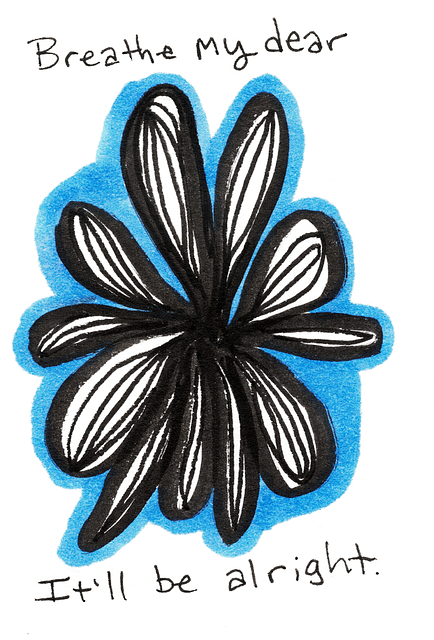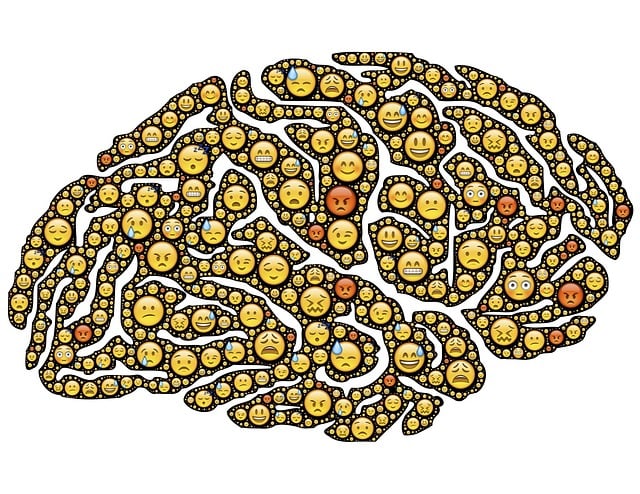Highlands Ranch Dialectical Behavioral Therapy (DBT) offers a comprehensive crisis intervention and long-term coping skills program for individuals facing acute distress or trauma. By combining mindfulness, emotion regulation, and effective communication, DBT empowers clients to develop emotional resilience, navigate crises like substance abuse or suicidal ideation, and foster healthier relationships with their feelings. This evidence-based approach prioritizes both client well-being and therapist self-care, ensuring tailored guidance for lasting mental wellness in Highlands Ranch.
“In times of crisis, effective support can make a world of difference. This article provides an in-depth look at crisis intervention strategies, with a specific focus on the role of Highlands Ranch Dialectical Behavioral Therapy (DBT). We explore how DBT, proven successful in managing mental health crises, offers guidance for professionals and caregivers.
From understanding the cornerstone principles of crisis intervention to implementing practical strategies from the Highlands Ranch model, this guide covers essential aspects of effective crisis care.”
- Understanding Crisis Intervention: A Cornerstone of Mental Health Support
- The Role of Dialectical Behavioral Therapy (DBT) in Crisis Management
- Implementing Highlands Ranch DBT: Strategies for Effective Crisis Guidance
- Post-Crisis Care and Prevention: Building Resilient Coping Skills
Understanding Crisis Intervention: A Cornerstone of Mental Health Support

Crisis intervention strategies are a cornerstone of mental health support, offering immediate and targeted assistance to individuals facing acute distress or a traumatic event. In Highlands Ranch Dialectical Behavioral Therapy (DBT), these interventions are meticulously designed to help clients navigate turbulent emotions, improve coping skills, and enhance their overall emotional well-being. By integrating effective communication strategies, therapy sessions foster an environment where individuals feel heard, validated, and empowered to manage future crises.
The goal of crisis intervention is not just to stabilize the present but also to equip individuals with long-term tools for resilience. Through the promotion of positive thinking and practical emotional regulation techniques, DBT helps clients develop healthier relationships with their emotions, fostering a sense of balance and composure during challenging times. These evidence-based approaches have proven to be transformative, enabling individuals to overcome crises and lead more fulfilling lives.
The Role of Dialectical Behavioral Therapy (DBT) in Crisis Management

In crisis intervention, Dialectical Behavioral Therapy (DBT) emerges as a powerful tool for managing intense emotions and distressing situations. Originating from cognitive-behavioral therapy, DBT combines mindfulness techniques with behavioral skills to enhance individuals’ ability to regulate emotions, tolerate distress, and improve interpersonal effectiveness. This structured approach is particularly beneficial in Highlands Ranch, where mental health professionals can employ DBT to address a range of crises, from substance abuse to suicidal ideation. By focusing on acceptance, mindfulness, and skill-building, DBT empowers clients to navigate challenging circumstances with greater resilience.
Incorporating Empathy Building Strategies and Cultural Sensitivity in Mental Healthcare Practice is integral to the success of DBT. Mental health professionals in Highlands Ranch can leverage these aspects to foster deep understanding and connection with individuals from diverse backgrounds during crisis situations. A comprehensive Risk Assessment for Mental Health Professionals guides interventions, ensuring safe and effective support while prioritizing both client well-being and the therapist’s self-care. Through tailored application of DBT principles, mental health practitioners in Highlands Ranch can offer transformative guidance, enabling individuals to overcome crises and foster lasting mental wellness.
Implementing Highlands Ranch DBT: Strategies for Effective Crisis Guidance

In the realm of crisis intervention, Highlands Ranch Dialectical Behavioral Therapy (DBT) stands as a game-changer. This evidence-based approach is tailored to help individuals navigate and manage intense emotions during crises. By implementing DBT strategies, mental wellness coaches can guide clients effectively through distressing situations. The core components include mindfulness techniques, emotion regulation skills, and distress tolerance tactics, all of which empower individuals to respond to crises with clarity and resilience.
Highlands Ranch DBT integrates these strategies into structured therapy sessions, fostering a safe space for learning and practice. Mental wellness coaching programs that incorporate DBT principles, along with the production of insightful mental wellness podcast series, can significantly contribute to crisis guidance development. These initiatives not only enhance individuals’ ability to cope but also promote long-term mental wellness by providing tools to de-escalate crises proactively.
Post-Crisis Care and Prevention: Building Resilient Coping Skills

In the aftermath of a crisis, providing post-crisis care and implementing prevention strategies is paramount to fostering resilience and mitigating potential future issues. Highlands Ranch Dialectical Behavioral Therapy (DBT) offers valuable tools for individuals to develop effective coping skills. DBT’s structured approach helps clients navigate emotional regulation, distress tolerance, and interpersonal effectiveness, all essential components of building resilience. Through therapy sessions, individuals learn to identify and manage intense emotions, reduce impulsive behaviors, and enhance their ability to cope with challenging situations.
The focus on Coping Skills Development within DBT is key to Depression Prevention and Burnout Prevention. By equipping individuals with a range of strategies, they become better equipped to handle stress, maintain a sense of balance, and prevent relapses or future crises. This proactive approach encourages personal growth, resilience, and long-term mental well-being, ensuring individuals are better prepared to navigate life’s challenges and promote overall health.
In conclusion, crisis intervention strategies, such as those offered through Highlands Ranch Dialectical Behavioral Therapy (DBT), play a pivotal role in mental health support. By understanding crisis situations and implementing effective guidance, we can significantly enhance post-crisis care and prevent future incidents. The strategies outlined in this article, combined with the structured approach of DBT, provide a comprehensive framework to foster resilient coping skills, ensuring individuals navigate crises with greater ease and resilience.














